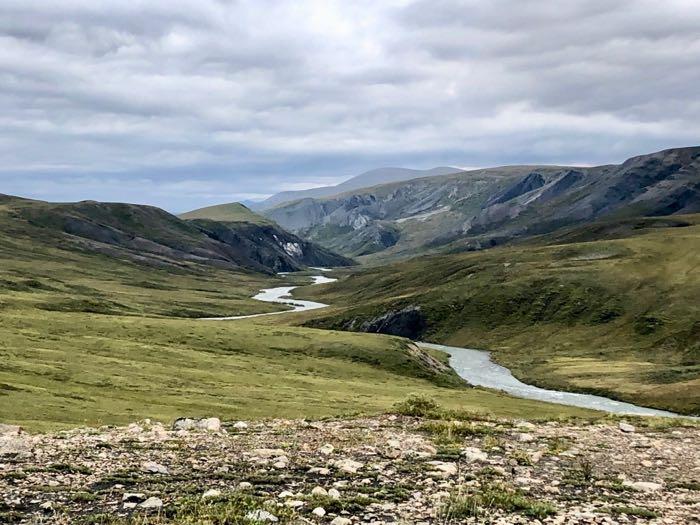 Our desitnation. The fossil bed we were looking for is to the left of the river in the distance where the near-black hill obscures the river.
Our desitnation. The fossil bed we were looking for is to the left of the river in the distance where the near-black hill obscures the river.
 Kelvin and I were cold, but we had a great time! I was also so happy I had the gators to keep my feet and pants dry.
Kelvin and I were cold, but we had a great time! I was also so happy I had the gators to keep my feet and pants dry.
We went for a hike at Atigun Gorge today. While it was frigid and windy, it was breathtaking in beauty. It also highlighted the fact that the tundra looks very level and easy to walk on when you look at it in pictures, but it's anything but that! There was a lot of slugging through small ponds, and moss and peat that give way by six inches. All of the greenery is also about six to eighteen inches high, so with each step we had to lift our feet very high. We also covered a significant number of hills with elevation. After all of that for about eight miles or five hours, we're all exhausted and ready for a good night's sleep.
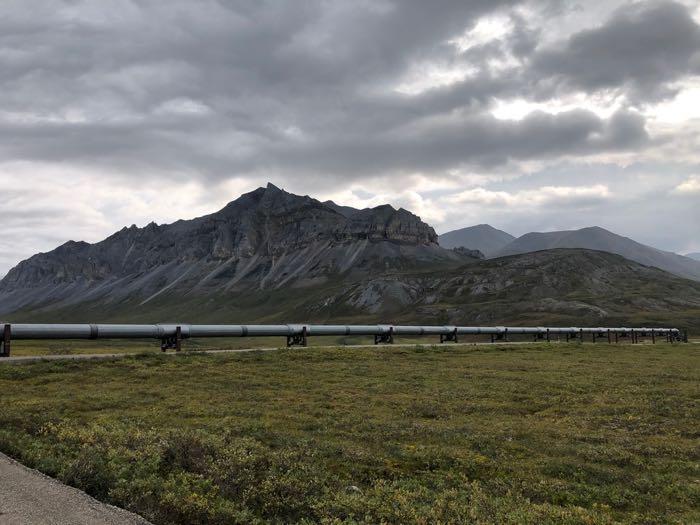 Start of the hike from the Dalton Highway
Start of the hike from the Dalton Highway
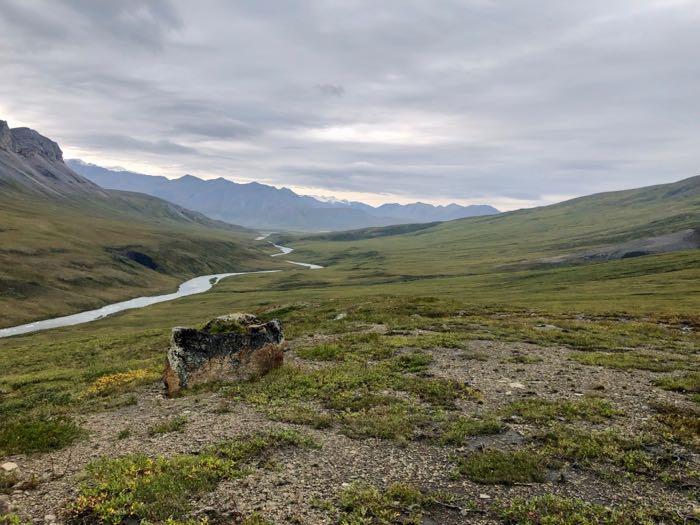 On a brief stop for lunch we looked back to where we came from only to see that the road had disappeared from view
On a brief stop for lunch we looked back to where we came from only to see that the road had disappeared from view
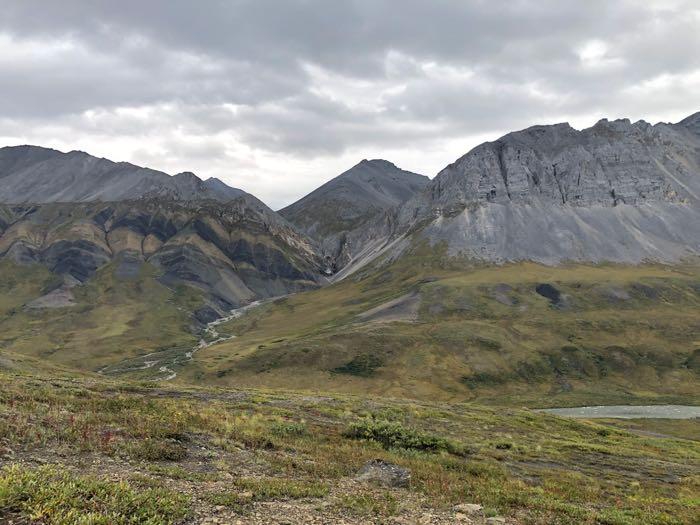 Atigun Gorge waterfall
Atigun Gorge waterfall
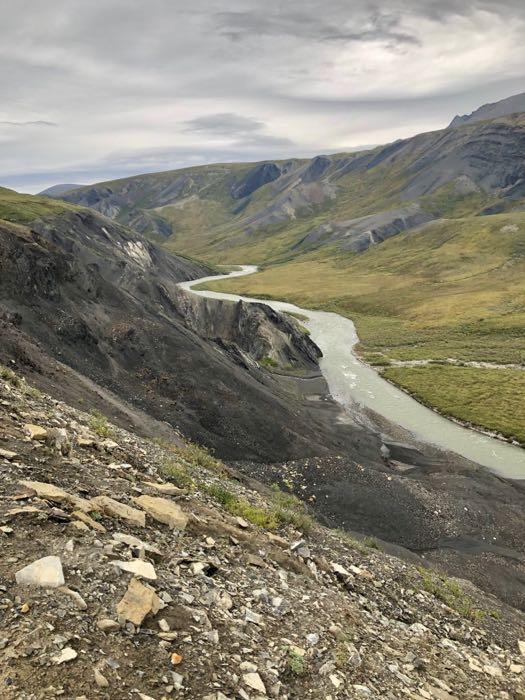 We can finally see where the river bends
We can finally see where the river bends
In Toolik Atigun Gorge is known for its fossil bed and quartz geodes. While geologists aren't very interested in it, we had a great time running around the ridge finding them just laying around. Most of the fossils were brachiopods (hardshell creatures similar to clams), but someone did find some coral as well. Dr. Bret-Harte told us that this area contained fossils from the Devonian Era, which ranged from 419.2 million years ago to 358.9 million years ago.
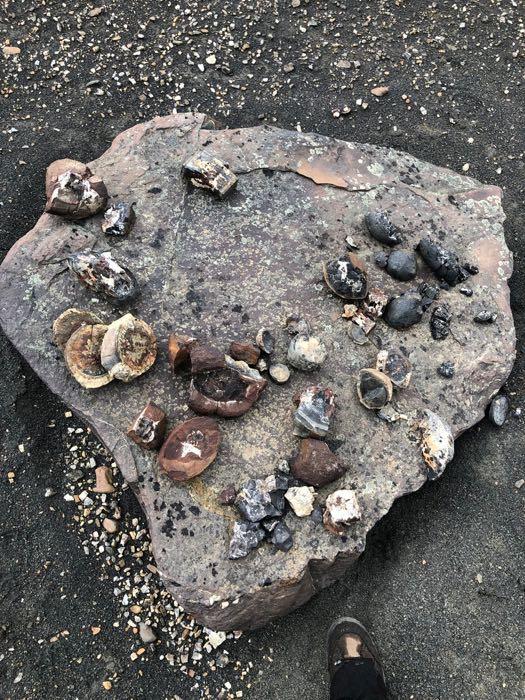 Geodes that a friendly hiker previously placed on a rock for others
Geodes that a friendly hiker previously placed on a rock for others
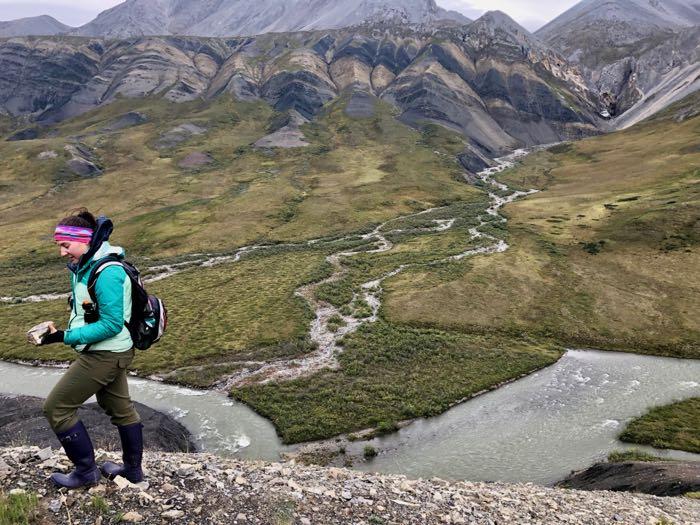 Emily Reast picks up fossils.
Emily Reast picks up fossils.
In terms of animal sightings, they were few and far between. Even songbirds were infrequent. We did see some Dall sheep across the gorge, but we could only identify them with binoculars. We enjoyed looking for vole "highways" which are small routes that they take to move from one burrow to another. We saw a few, but they moved very fast, and I couldn't get any pictures. We also noticed many tracks of different animals, including grizzly bear, wolf, and sheep.
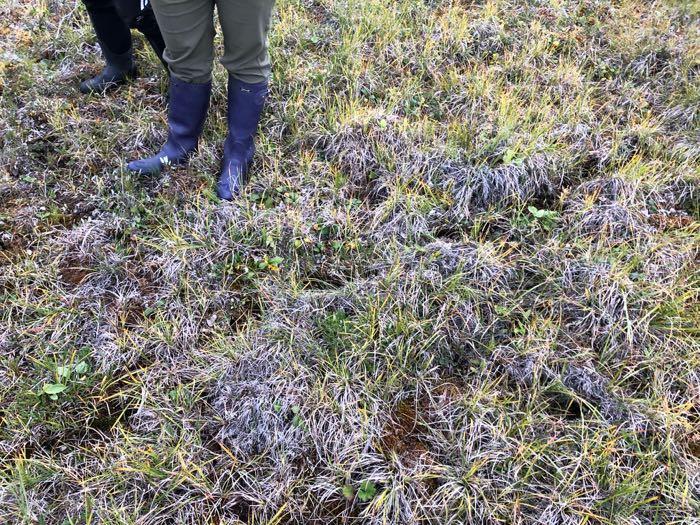 Vole highway
Vole highway
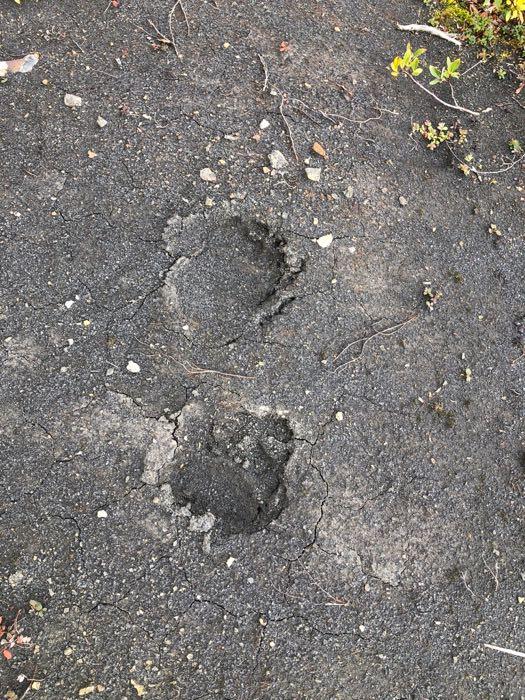 Grizzly tracks
Grizzly tracks


Add new comment